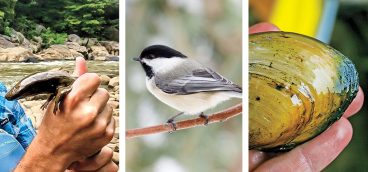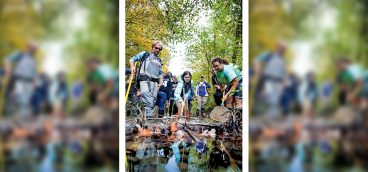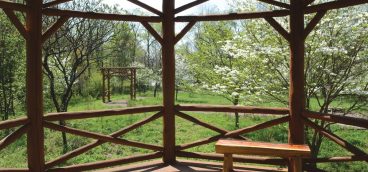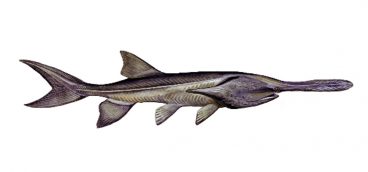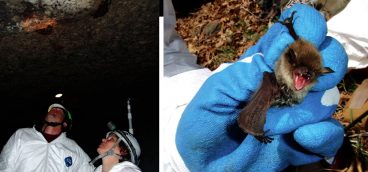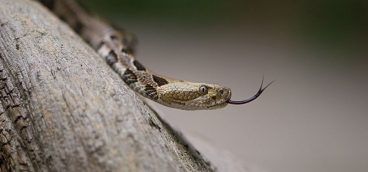
Last year, I rode my bike on back roads near our farm. I prefer swimming, but our YMCA was closed, so I dusted off my 30-year-old red Cannondale and set out in a beautiful valley between two ridges of the Allegheny Mountains. My favorite ride was a seven-mile loop with steep hills and as I pedaled slowly, traversing the steepest inclines, I saw something on the road I’d never noticed from a car: huge amounts of litter.
I’ve always disliked litter, perhaps because I heeded the anti-litter slogans of my childhood: “Don’t be a Litterbug” and “Every Litter Bit Hurts.” Even at a young age, I believed such slogans were created for the good of the planet and I wanted to contribute to that cause. But I was naïve. According to Heather Rogers’s book, “Gone Tomorrow, The Hidden Life of Garbage,” those anti-litter campaigns were dreamed up in the middle of the last century by American Can, the Owens-Illinois Glass Company, Dixie Cup, Coca-Cola and other companies to prevent them from having to manufacture more expensive, refillable containers — and the campaigns were promoted by a newly formed organization called Keep America Beautiful. “The centerpiece of the organization’s strategy was its great cultural invention: ‘litter,’” Rogers writes, and the real villain was not the bottle and can companies, but “the notorious litterbug.”
I may have been well indoctrinated, but I still don’t want to be a litterbug. I’ve never understood people who roll down car windows and toss out soda cans, and as I biked past filthy beer bottles and rusty power drink cans, I got madder with each bike ride — rides that were supposed to calm my mind during a global pandemic. So one hot and humid day, still in my biking clothes, with an arthritic right ankle that falters on uneven surfaces, I got into the car and ventured out to pick up the litter along my bike route.
My first stop was Horseshoe Bend, a dangerous state road with a hairpin turn and numerous blind spots. I put on my flashers — “or 4-ways” as they call them here in Appalachia — parked on the berm when I could, and raised my car’s trunk to be more obvious. I attempted to wear gloves, but I’d grabbed my husband’s extra-large, ill-fitting canvas work gloves, with which I could hardly grasp the garbage, so I often used my bare hands, not the wisest move during COVID-19. I tiptoed over poison ivy, cut my shin, which bled, and spilled beer and 7UP on my bare legs. My ankle hurt climbing up and down ravines, I encountered a foul-smelling, fly-ridden opossum, and ants got inside the car and crawled on me. I worried about ticks. At least I had the pleasure of the song of the wood thrush as I walked.
One stretch of Horseshoe Bend borders our woods, which are filled with ginseng, scarlet cup mushrooms, and wild blackberries, but there was none of that beauty on the adjacent roadside — only brown shrubs, dead thistle, and a few sprigs of Queen Anne’s lace. That’s because Pennsylvania mows and sprays its state roads with any one of numerous herbicides: Roundup, Escort, Arsenal, Vastlan, Polaris, Pathfinder II, Vanquish, Krenite S, Assure II, and Rodeo, according to Jan Huzvar, deputy communications director of the Pennsylvania Department of Transportation (PennDOT). And I was traipsing through it all.
What a pile of junk I collected: 10 plastic water bottles, one Coke, four Pepsi, six energy drinks, one Bootlegger raspberry liquor, 25 beers cans — Coors, Budweiser and Keystone Light (and the plastic bag they came in) — six supersized cups (McDonalds, Dairy Queen, and Wendy’s) a Wonder Bread bag, one reflector, two lottery tickets, tire shreds, a straw, french fry boxes, a chia squeeze drink, a plastic salad container, a pair of protective glasses, weed whacking string, a car fender, a Chicken McNuggets wrapper, a cardboard Coors Light carrier, two aluminum pipes, torn food wrappers, and a large red Dixie cup. Some items I left on purpose, including plastic flowers that blew out of a cemetery, which I felt deserved some respect, concrete slabs I couldn’t lift, and a dirty diaper I wasn’t able to reach down a steep hill. And I know I missed a green chewing tobacco canister I’d seen on a bike ride, so it’s still out there — somewhere. At my last two stops, I found a bag of used insulin needles, and a water bottle filled with more needles.
My litter sample was small, however, compared to what the Pennsylvania Litter Research Study estimates clogs our roadways on any given day: 502.5 million pieces of litter, including 186.2 million cigarette butts, 152.9 million pieces of plastic, 61,546,655 pieces of paper, 32,182,246 pieces of metal, 29.3 million beverage containers, 12.3 million fast food items, and 5,628,179 pieces of glass. Rural roads, such as Horseshoe Bend, I presume, are estimated to have 1,635 litter items per mile.
“Pennsylvania has a littering habit” opened a press release announcing the study, released in November 2019 at a “Litter Summit” in Harrisburg. Funded by PennDOT, Pennsylvania’s Department of Environmental Protection (DEP), and Keep Pennsylvania Beautiful (KPB is a state affiliate of Keep America Beautiful), the study monitored litter in 180 Pennsylvania sites, including nine cities, and the resulting 110-page report concluded that “reducing littering behavior is key to a clean, beautiful, healthier, and more prosperous Pennsylvania.”
I returned home, sweaty and tired, to a husband angry that I’d used my bare hands to fetch someone’s needles. I showered with pink antibacterial soap prescribed to him before a surgery, then called Farley Toothman, a friend who was a judge in a neighboring county, and asked if he’d ever tried anyone for littering. Not in 10 years on the bench, he said. “It’s horrific, but it’s not enforced anywhere.” He told me those needles were not used for insulin, but likely for heroin or other drugs.
I recycled what I could and threw out the rest, but now I had another problem: how was I to dispose of medical waste? I called our borough office, but no one answered. The police department didn’t call back. The police chief didn’t answer my email. The township supervisor’s office didn’t know, but said local citizens, such as the Girl and Boy Scouts, clean our roads, not the state, and that Horseshoe Bend is too dangerous for children. If I wanted to know more, I was advised not to call PennDOT because they don’t call back, but instead to file a complaint on their website. I did so, filled out the required form, and laughed at its closing line: “Are you sure you want to submit this concern?”
Hell yes.
Twenty-four hours later, a PennDOT representative left me a message concerning my “customer care concern.” Whoever had cleaned up litter on Horseshoe Bend had quit, he said, so the road was now available for an “Adopt-A-Highway” slot. I called back for details, but he didn’t return my call. I logged onto the Adopt-A-Highway website, which flashed so violently my cursor barely worked, but I could read enough to learn that in order to adopt a highway, applicants must be at least 8 years old and include someone 18 or older. Adoption requires cleaning a highway for two years, and allows the construction of roadside memorials. For litter clean-up, PennDOT will supply vests, trash bags, and “Litter Crew Ahead” signs.
But Susan Huba, executive director of The Loyalhanna Watershed Association, a local environmental group that organizes litter clean-up, said getting donated supplies from PennDOT is difficult. “They fight us every year with the amount of material we need,” she said. If she asks for 500 garbage bags, they supply 400. “I feel like I have to sell my first-born child to get enough bags.”
The state doesn’t clean up, she said, only picks up trash bags that her crews leave at designated spots, and “it takes them weeks to do so.” Animals often get into the bags and spread garbage everywhere. During one clean-up, she asked to close one lane of a narrow road where people drive fast, but was turned down. She’s been yelled at twice by police who said she shouldn’t be out there at all, but if she must, “You should do this at 5 a.m. on a Sunday.” She told me a story about the state mowing grass near the organization’s property and instead of removing a mattress someone had tossed, they mowed over it.
Deborah Klenotic, deputy communications director of DEP, disagreed that the state does nothing about litter. “Without PennDOT and DEP funding and supplies,” she said, “litter collection wouldn’t exist.” Klenotic said the study revealed to her that Pennsylvania needs to shift its emphasis from clean-up to prevention. “Clean-up is astronomically expensive and we can’t keep pace with the littering that’s happening,” she said. The nine cities studied spend $68.5 million annually on litter clean-up, and PennDOT spends $13 million.
Litterbugs simply assume someone else will clean up after them, said Shannon Reiter, KPB’s executive director. “We have to have a certain level of pride in ourselves,” she said. “Why are we trashing our communities?”
Litter may not be the most talked-about environmental issue, but it’s something we confront every day where we live and work, and, according to the 2019 study, has a host of repercussions: raises taxes, reduces property values, negatively impacts business and tourism, injures children, stunts plant growth, kills wildlife, and may cause more crime and vehicle accidents. The study outlined a plan to educate residents, increase trash cans, develop partnerships, assist communities, and study litter ordinances, laws, statutes and enforcement.
But David Masur, executive director of environmental group PennEnvironment, doesn’t believe education, clean-up, or enforcement are the answers. “For 50 years, we’ve tried the litterbug thing and the Native American riding his horse with the teardrop in his eye. That stuff only got us so far.” The key, he said, is fewer or no plastic bags, and a bottle deposit. “We have to reduce front-end consumption. The manufacturers are basically saying, ‘It’s your problem. You figure it out.’ The tail end fixing of the problem is not a viable solution.”
My solution was to adopt Horseshoe Bend so I tracked down Amanda Dalicandro, PennDOT’s new Adopt-a-Highway coordinator. My curs0r still wouldn’t work on their website, so she kindly filled out a form for me, instructed me to sign an agreement, and to watch safety videos, which I did. In the meantime, she said PennDOT would study Horseshoe Bend’s traffic volume, road shoulders, and crash data. While I waited for approval, I made a plan. I’ll go out on a less hot day, wear an orange vest, long pants, hiking boots, and properly fitting gloves. I’ll request trash bags and official signage. Then, I’ll gather a group of like-minded friends and we will clean up our stretch of PA’s country roads.
But a couple of weeks later, I got a call from Dalicandro, who told me Horseshoe Bend was too dangerous and my request was denied. “Safety is our main concern,” she said. “If it’s not safe, we can’t justify it.” I understand a road being too dangerous for children, but for adults? Who will clean up the road, then? I suggested closing the road, but she said that’s a police issue and beyond her control. Might the state send a crew? I asked. “I don’t know the answer to that,” she said.
I have biked many times since, and the litter is back, but now there are soy sauce packets, eggshells, milk cartons, athletic socks — and masks.
And what about those needles I found? For weeks they sat in a coffee can on a shelf in the barn. It took two more phone calls, to our county recycling expert, to get an answer. She instructed me to put the needles in a detergent bottle, tape the lid, write POISON or draw a skull and crossbones on top, and toss them into my household trash.


